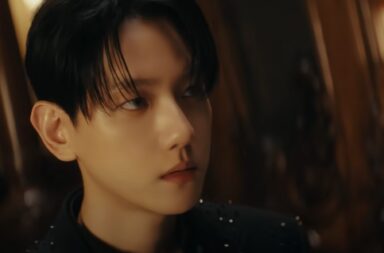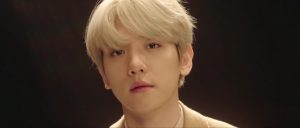 As you’re clicking on this article, you might be wondering: why dredge this debate back up just as it’s tapering off? What more can be said that hasn’t already been said? Yet the timing is crucial: we need this discussion precisely because all the shots have been fired, and because the views expressed fall into two seemingly irreconcilable camps.
As you’re clicking on this article, you might be wondering: why dredge this debate back up just as it’s tapering off? What more can be said that hasn’t already been said? Yet the timing is crucial: we need this discussion precisely because all the shots have been fired, and because the views expressed fall into two seemingly irreconcilable camps.
My piece does not aim to dramatise the incident further by either condemning Baekhyun‘s character or vindicating him. And it most certainly does not aim to gloss over the issue as a petty fanwar. Instead, it provides a more constructive take on approaching the delicate subject of mental health within the K-pop context.
The discussion will be anchored in two questions: Should we expect idols to be prepared to advise fans who open up about their mental health issues? Could there be a better response in such a situation?
 The choice to phrase these questions broadly, without mention of Baekhyun, is not intended to absolve him of responsibility for his comments. But for this discussion to be fruitful, it needs to look beyond the level of the individual to the level of communities and their thought systems. It has to move away from the spotlight on personal culpability that puts it in a gridlock of two mutually exclusive conclusions — either Baekhyun was wrong, or he wasn’t.
The choice to phrase these questions broadly, without mention of Baekhyun, is not intended to absolve him of responsibility for his comments. But for this discussion to be fruitful, it needs to look beyond the level of the individual to the level of communities and their thought systems. It has to move away from the spotlight on personal culpability that puts it in a gridlock of two mutually exclusive conclusions — either Baekhyun was wrong, or he wasn’t.
Neither conclusion is completely false, but the focus can be better placed. Instead of debating over whether he was wrong, or what he should not have done, it’s more useful to discuss possible action in future situations. This article will assess both sides of the debate to draw a consensus, and suggest a more constructive approach to mental health issues within the context of fan and idol interactions.
This discussion includes comments related to depression, and a very brief mention of Jonghyun near the bottom of the article. Readers who may be distressed by these details are advised to take care in proceeding.
So what really happened?
 Before proceeding with the analysis, a comprehensive recap of the incident is in order. Important arguments raised so far have been sidelined by confusion over translations and the credibility of sources. I’ve taken care to cross-refer between English and Korean sources, as well as to build up as complete an account as possible by supplying my own translations, which have also been checked against other sources to eliminate mistranslations that I’ve come across while researching on the topic.
Before proceeding with the analysis, a comprehensive recap of the incident is in order. Important arguments raised so far have been sidelined by confusion over translations and the credibility of sources. I’ve taken care to cross-refer between English and Korean sources, as well as to build up as complete an account as possible by supplying my own translations, which have also been checked against other sources to eliminate mistranslations that I’ve come across while researching on the topic.
On December 30 2017, Exo held a fansign event. The following day, a fan tweeted her account of an interaction with Baekhyun, during which she had confided to him that she was having a hard time because of depression. She shared the account because it brought her comfort. It should be noted that there are two parts to his comments: the first is his response to her, which was not recorded on audio but was related in her original account (more on this later).
Baekhyun must’ve continued pondering over their conversation, because during his closing remarks, he addressed all the fans with another set of comments as follows (translated by me from an audio recording; *see my note at the end of this article):
It seems that there are people who are depressed[1] [here] and, well, if I were to express my opinion, [I’m] not sure why [people] become ill with depression or insomnia.[2] That is to say, well, I’m not criticising that [people with depression or insomnia/ or that people suffer from depression or insomnia]^, and it’s not possible for everyone to force [themselves] to only have good thoughts,[3] but around [us] there are people who have good vibes[4]. Whether it’s your friends beside you, or others… [and] [you know that] you also have me [right]?[5] By looking at me and the other Exo members here, I hope everyone can smile.
[Translator’s Notes:
[1]This has been translated by some sources as “people with depression”, but the adjective “depressed” which describes the mood is used, rather than the term “depression”.
[2]I have omitted a question Baekhyun posed because of ambiguity of context. In the audio, after his first sentence, there is a sound made by a fan that suggests his question could’ve been directed at something that occurred on the side, and not in relation to his thoughts. That he opened the following sentence with a conjunction also suggests it was a diversion from what he was saying.
[3]This has been mistranslated into “you can’t force yourself to think negatively” by some sources.
[4]The word used here, “기운”, has several meanings, but when applied to people the closest meaning it has in English would be “good vibes” in the sense of the atmosphere of mental and emotional energy that you can’t see, but can feel, from someone.
[5]The grammar used, “잖아요”, has the nuance of emphasising that the content mentioned is something that the listener already knows, hence the additions of “you know that” and “right” in parentheses.]
The incident snowballed, allegedly because of a post that zoomed in on the line “[I’m] not sure why [people] become ill with depression or insomnia” and isolated it from the context of the full statement made. Whether because of this or not, various Korean media outlets also picked up on the incident. The controversy prompted the fan to delete her original tweets and post a clarification note on January 1.
Baekhyun also posted a lengthy apology on his Instagram on January 2 (a fairly accurate translation can be found here). He explained that he felt the gravity of what the fan was confiding in him, but in his fear that he would not have another chance to do so, and in his rush to convey words of comfort, he chose words that were unsuitable and careless, which he regretted.
What’s wrong (and right) about the comments?
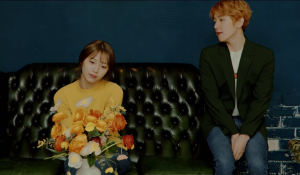 Before going into the analysis, the issue of circulation needs to be mentioned briefly. It doesn’t matter who spread that line selectively, or with what intentions; it doesn’t change the comments that Baekhyun made. But it undoubtedly caused all nuance of the statement to be lost.
Before going into the analysis, the issue of circulation needs to be mentioned briefly. It doesn’t matter who spread that line selectively, or with what intentions; it doesn’t change the comments that Baekhyun made. But it undoubtedly caused all nuance of the statement to be lost.
Instead of jumping straight into what’s wrong with the comments, it’s first important to emphasise what Baekhyun got right. He accurately recognised that, more than actual medical advice on how to ease her struggle with depression, the fan was seeking moral support and encouragement. He also correctly identified the fact that a social support system is crucial for those living with depression.
There are four issues with the comments, which I will be explaining to draw out underlying common misunderstandings on mental illness. The line that was most upsetting to fans and observers, “[I’m] not sure why [people] become ill with depression or insomnia”, has been interpreted to mean that it’s incomprehensible for people to become ill with depression, invalidating it as a legitimate illness in need of diagnosis and treatment.
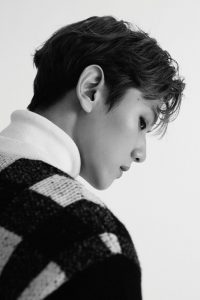 But if we dial back to the literal meaning, Baekhyun could have been trying to express honestly that he does not understand it, implying that he is not well-placed to give advice on it. Still, his sentence aligns depression with insomnia. While both can be very debilitating in their own ways, and are often related to the extent that sleep disorders are sometimes misdiagnosed as depression, they are two distinct illnesses. Lumping them together can, intentionally or not, come off as a form of trivialising the severity of depression.
But if we dial back to the literal meaning, Baekhyun could have been trying to express honestly that he does not understand it, implying that he is not well-placed to give advice on it. Still, his sentence aligns depression with insomnia. While both can be very debilitating in their own ways, and are often related to the extent that sleep disorders are sometimes misdiagnosed as depression, they are two distinct illnesses. Lumping them together can, intentionally or not, come off as a form of trivialising the severity of depression.
The second issue is more problematic because it’s rooted in misunderstandings of depression and mental illness. What Baekhyun intended as words of encouragement — to look at him and the Exo members and “smile” — is underpinned by the myth that simply smiling and lifting one’s mood can ease depression. The idea that depression is a mood, instead of an illness caused by a complex combination of neuro-chemical imbalances, genetics, personality, and environmental stressors, is a misconception shared by a lot of people, not just Koreans. The fact that Baekhyun used “people who are depressed” (a descriptor of mood) synonymously with “people who become ill with depression” (a descriptor of the mental illness) emphasises how he has this misunderstanding. His remarks unintentionally, but definitely, promote the misconception.
The third problem relates to confidentiality: the fan shared her struggle during the one-on-one conversation portion of the fansign. Obviously, Baekhyun and his fan are not bound by the legal obligation of patient confidentiality, but ethically, it is inappropriate to bring up the topic during the group interaction section, which is a public setting. The fan in question has not revealed her sentiments on Baekhyun’s closing remarks; she only expressed her feelings about their conversation. Nonetheless, what he said — “It seems there are people who are depressed [here]” — was specific enough to possibly be distressing. He could have broached the topic of fans suffering hardships and provided encouragement without pinpointing depression as the cause for the hardships. That he did not do so indicates how he, like many who lack a proper understanding of mental health, does not register the severity of the illness enough to realise such circumstances could be a trigger.
Oddly enough, the fourth and most troubling part of his comments was also the least discussed. In her original tweets, the fan related another part of the conversation (translated by me, and checked against the Joong Ang Daily article linked in the sources):
[Baekhyun asked] you’re not eating medicine [to treat your depression], are you? so [I replied] I’m eating it and wrinkled [my face/ nose] [and he said] oh no medicine and all that isn’t good, [one’s] mood will be subdued [and you will get] woozy [but] on the contrary [there might be] side effects… be happy and gather strength and stop taking medication.
Putting the alarming advice aside for a short while, it has to be noted that the nuance of his tone can’t be felt through the translation. His worry and concern for the fan comes through much clearer when reading it in Korean. He is sincere, and in no way patronising or consciously attempting to belittle her struggles. And that’s the problem: the comments are said without malicious intent, but because of their sincerity, they could be taken seriously by the listener.
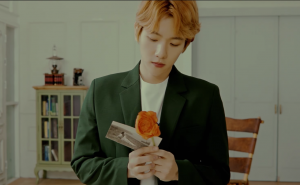 While I don’t believe the fan would take his words straight up as advice, they reinforce the terribly misinformed view that depression can be willed away with mental strength and happiness. This view falsely places the burden on those who live with depression, making them feel responsible when they are unable to control their illness, when the reality of depression is the reverse. It’s not that someone can cure their depression by controlling their moods; depression is the cause of them being unable to control their moods as well as all other physical, mental, and emotional symptoms.
While I don’t believe the fan would take his words straight up as advice, they reinforce the terribly misinformed view that depression can be willed away with mental strength and happiness. This view falsely places the burden on those who live with depression, making them feel responsible when they are unable to control their illness, when the reality of depression is the reverse. It’s not that someone can cure their depression by controlling their moods; depression is the cause of them being unable to control their moods as well as all other physical, mental, and emotional symptoms.
In addition, Baekhyun told the fan in no ambiguous terms to stop taking medication. He was concerned about the side effects the medication could have, and while it’s not entirely inaccurate that anti-depressants have certain side effects, such a remark ignores the outweighing positive effects the medication can have for those struggling with depression. Medication alone is not enough to keep depression in check, but it is often a crucial part of the treatment process. Furthermore, any decision regarding medication or treatment is one that should be made in the context of a discussion between a patient and a qualified professional, and it is careless to dispense advice on treatment without proper knowledge.
What can idols — and we — do about the situation?
With the full background of the incident and the misconceptions underlying Baekhyun’s remarks in mind, it’s time to return to the two questions mentioned earlier.
Should we even expect idols to be prepared to advise fans who open up about their mental health issues? The answer seems to be an obvious no. Idols are entertainers. Accordingly, their training is in music and performance, skills to better communicate with fans (like foreign languages), and often variety skills and acting. Very rarely are they given guidance in cultural sensitivity issues, let alone any sort of training on counselling.
Yet to insist on an absolute “no” is to ignore the realities of fan and idol interactions within K-pop. Idols are, to varying degrees, a source of emotional support and strength for most fans. Fan life, if properly managed, can be a very positive force for handling the pressures of daily life. Fans often connect with their idols on such a deep level that, when they meet their idols in person, they sometimes share their struggles, and idols will share words of encouragement in response.
 So here’s a better answer to the question: technically no, but because it could happen, idols should be prepared (by themselves or their agencies) for the possibility. Despite strong stigmas remaining, discussions of mental health are slowly but surely emerging. Given this and the context of the K-pop fan-idol relationship outlined, more idols might find themselves in Baekhyun’s shoes.
So here’s a better answer to the question: technically no, but because it could happen, idols should be prepared (by themselves or their agencies) for the possibility. Despite strong stigmas remaining, discussions of mental health are slowly but surely emerging. Given this and the context of the K-pop fan-idol relationship outlined, more idols might find themselves in Baekhyun’s shoes.
This brings us to the next question: could there be a better response in such a situation? Yes, a thousand times over. But as the saying goes, hindsight is 20/20. It’s all too easy for us, and for Baekhyun himself, to look back at the situation and think up a myriad of “If only he/I had said…”s. It’s a very sudden and urgent situation to be placed in, to have a fan confide something so serious to you and to produce a suitable response on the spot while the staff are hurrying you to move on to the next fan in line.
Understanding this, however, doesn’t change the fact that whatever better words and expressions Baekhyun could have swapped in, he still had those misconceptions about depression. But it’s important to remember that what seems like basic knowledge isn’t a given. Although increasingly open discussions of mental health have helped more people to understand and work against misconceptions, it’s still not easy for anyone who isn’t a trained mental health professional, or who doesn’t live with depression, to undo the prejudices they’ve been indoctrinated into believing, much less dispense suitable advice.
Even the fan, who suffers from depression herself, did not realise the misunderstandings about depression that Baekhyun’s choice of words could perpetrate if made public, or did not deem it severe enough to be more selective in what she posted. This isn’t to blame her for the controversy, but to make clear that such awareness doesn’t come naturally, and is learned.
 Acquaintance with people who struggle with mental illness, suffering from these illnesses first-hand, or even working as a mental health professional (as we learned heartbreakingly from Jonghyun’s case) doesn’t guarantee awareness and understanding of it. No matter how hard it is for us to admit it, we are all socialised into regarding mental illnesses in certain ways, and it takes a combination of opportunity and consistent effort over time to overcome such indoctrination. It’s not a system of thinking that can be broken overnight.
Acquaintance with people who struggle with mental illness, suffering from these illnesses first-hand, or even working as a mental health professional (as we learned heartbreakingly from Jonghyun’s case) doesn’t guarantee awareness and understanding of it. No matter how hard it is for us to admit it, we are all socialised into regarding mental illnesses in certain ways, and it takes a combination of opportunity and consistent effort over time to overcome such indoctrination. It’s not a system of thinking that can be broken overnight.
Yet the reason why much of the criticism tends to focus on the individual rather than the community is because, at its core, social change still relies on individuals. When we become aware of our prejudices, the only way we can change is to doggedly change ourselves, and the way we think. The backlash against socio-culturally insensitive remarks by idols is rooted in the reality that they have more power than the average individual to reinforce prejudice, but by the same token, they also have more power to speak up against it.
So this takes us back to the context of the individual idol: if someone else were placed in Baekhyun’s situation, what would be a better response?
Firstly, the response should recognise that the fan is seeking emotional reassurance, and validate instead of trivialise the fan’s hardships while offering supportive comments. Secondly, the response should avoid perpetuating misconceptions or offering inaccurate solutions for mental illnesses. It’s possible for an idol to offer his presence as a form of emotional support, but not a quick cure, for the fan’s mental health struggles.
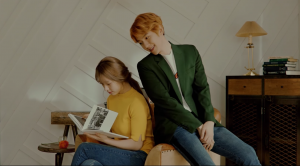 The final, missing piece is an affirmation that the fan is seeking professional help. This is crucial in validating depression as a condition in need of medical attention, but also serves as a subtle reminder of the limits to which an idol, no matter how cherished, can aid his or her fans. Such a response would address what the fan wants — moral support — but also what he or she needs: legitimisation of mental health struggles, and the necessity of professional medical treatment.
The final, missing piece is an affirmation that the fan is seeking professional help. This is crucial in validating depression as a condition in need of medical attention, but also serves as a subtle reminder of the limits to which an idol, no matter how cherished, can aid his or her fans. Such a response would address what the fan wants — moral support — but also what he or she needs: legitimisation of mental health struggles, and the necessity of professional medical treatment.
At this point, proper understanding of mental health is, unfortunately, not basic knowledge. But we can agree that we are working towards it becoming basic knowledge. This is why it’s important to discuss an incident like Baekhyun’s comments when it surfaces. However, it’s also essential to discuss it in ways that are not premised on moral high-ground and aggressive implications of fixedness (“you don’t understand this, you’re irredeemable”), because with that, the discussion becomes a form of exclusion.
When we see a pattern of socio-cultural insensitivity that repeats itself, we need to resist turning it into an attack on individual character. We should instead address the collective thought systems behind individual action, even as we acknowledge the importance of change on an individual level. If we default to the former without discernment, progress towards understanding and inclusiveness will only become harder to achieve.
*Note: This audio recording was uploaded on December 31 to a different Twitter account — an account was created for this specific purpose. It appears to be antagonistic, which calls into question its credibility, so I checked it against the audio recording that the fan behind the original fan account uploaded on January 1 for clarification following the controversy.
The content is the same, except the fan did not include his opening remarks (the lines preceding the ^ caret sign indicated in my translation). The omitted audio corresponds with her original fan account tweets, which have since been deleted, but two versions of the screenshots can be found here and here. I have also cross-referred the audio with two transcriptions from here and here. In short, there is little possibility that any part of these remarks were fabricated or mis-remembered, as there is direct audio evidence.
If you or anyone you know is experiencing distress, a list of helpline numbers from around the world can be found here.
(Images via SM Entertainment. Beyond Blue, Joong Ang Daily, Instagram, National Sleep Foundation, Pann, Twitter [1][2][3])


